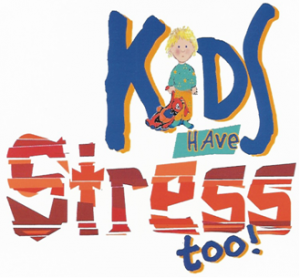 Like adults, kids also struggle with stress. Too many commitments, conflict in their families and problems with peers are all stressors that overwhelm children.
Like adults, kids also struggle with stress. Too many commitments, conflict in their families and problems with peers are all stressors that overwhelm children.
The key to helping kids manage stress is teaching them to problem-solve, plan and know when to say yes and no to activities and commitments, she said. It isn’t to “make everything smooth and comfortable.”
“If you don’t teach [your kids] how to manage stress, they will self-medicate with food, drugs and alcohol.” said Lynn Lyons, a psychotherapist who specializes in treating anxious families. In other words, kids will reach for something to make them feel better right away, and usually it won’t be something healthy, she said.
Here’s how you can help your kids manage stress successfully.
1. Stop overscheduling.
One of the biggest stressors for kids is being overscheduled. And yet, today, kids are expected to pay attention and perform in school for seven hours, excel at extracurricular activities, come home, finish homework, and go to bed just to do it all over again the next day. As Lyons said, “Where’s the downtime?”
Kids need downtime to rejuvenate. Their brains and bodies need to rest. And they might not realize this by themselves. So knowing when your child is overscheduled is important.
Lyons suggested looking at your kids’ schedules over the course of a week and making sure that there’s enough downtime — “when you’re not watching the clock.” Are there several hours on the weekend or a few nights during the week when your child can simply kick back and relax?
Also, “pay attention to how your family is eating their meals. Is everybody eating on the run, in the car, grabbing and going? That’s an indicator that too much is going on.”
2. Make time for play.
Lyons emphasized the importance of “play that isn’t pressured.” There’s no lesson, competition or end goal, she said. Younger kids will do this naturally. But older kids may forget how to simply play.
Combine play with physical activity, which is critical for well-being. Some ideas include: riding your bikes, throwing around the baseball, wrestling and hiking, she said.
3. Make sleep a priority.
Sleep is vital for everything from minimizing stress to boosting mood to improving school performance, Lyons said. If your child isn’t getting enough sleep, that’s another red flag that they’re overscheduled, she said.
Again, reducing commitments helps. Also helpful is stressing the importance of sleep, and creating an environment that facilitates it. For instance, keep TV – and other electronics – out of your child’s bedroom. (“There’s no research that says TV is good for kids.”)
4. Teach your kids to listen to their bodies.
Teach your kids “to understand their own bodies and the physiology of stress,” Lyons said. For instance, sit in the car with your child, and press the gas and brake, and listen to the engine revving. Explain that “our body just revs and revs, and then it wears out and says ‘enough.’”
Encourage them to listen to what their bodies are saying. While it’s normal for a child’s stomach to feel jumpy on the first day of school, leaving class because their stomach hurts or waking up repeatedly with a headache is a sign there’s too much going on, she said.
5. Manage your own stress.
“Stress is really contagious,” Lyons said. “When parents are stressed out, kids are stressed out. If you’re living in an environment with one thing after another, your kid is going to pick up on that.”
She underscored the importance of showing your kids how to relax and effectively deal with stress. “They have to see you slowing down.”
6. Make mornings calmer.
A disorganized home is another stressful trigger for kids, and this is especially evident in the mornings. Lyons suggested making mornings smoother, because this “sets the tone for the day.” This piece has specific suggestions.
7. Prepare your kids to deal with mistakes.
For kids a lot of stress comes from the fear of making mistakes, Lyons said. Remind them that they’re not supposed to know “how to do everything or do everything right.”
Also, while making good decisions is an important skill to learn, the skill that might be even more important is learning how to recover from a bad decision, Lyons said.
”We can really stress out our kids by not helping them understand that screwing up is part of the process.” Help your child learn to figure out the next steps after a bad decision or mistake. Help them figure out how to fix it, make amends, learn the lesson and move on, she said.
Overall, Lyons suggested parents look at the bigger picture. “You can’t live a stressful life and then teach stress management.”
Source: http://psychcentral.com/lib/7-tips-for-helping-your-child-manage-stress/00017829
